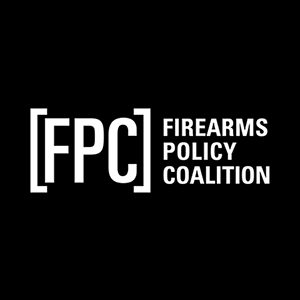
The U.S. Supreme Court recently declined to hear a major New Jersey-based Second Amendment and civil rights case. On January 17, the Nation’s highest court denied the petition for a writ of certiorari in the Greco v. Platkin case that addressed “Red flag” laws and firearms seizures.
Greco v. Platkin petition for writ of certiorari
Greco v. Platkin is a suit that challenges the constitutionality of New Jersey’s 2018 NJ Extreme Risk Protective Order (ERPO) Act, which took effect on September 1, 2019. Numerous states have such laws, commonly called “red flag” laws that presumptively assume guilt, often without any due process, and strip a person of their constitutionally protected rights and property until an investigation can be concluded.
The New Jersey version is especially pernicious in that it requires less evidence to initiate the procedure by using the lower standard of “good cause” instead of “probable cause”
New Jersey Attorney General Law Enforcement Directive No. 2019-2 explains:
In cases where law enforcement and prosecutors have only good cause – but not probably cause – that the respondent poses an immediate and present danger of causing bodily injury to self or others by having custody or control of, owning, possessing, purchasing, or receiving a firearm, they may still seek a TERPO petition and order, but not a search warrant.
https://www.nj.gov/oag/newsreleases19/Extreme-Risk_Directive.pdf
According to the njcourts.gov site, when an order is issued under this act, a respondent immediately loses all Second Amendment rights and to comply must:
- Surrender all firearms and ammunition to law enforcement.
- Surrender any license to purchase, own or carry firearms.
The respondent cannot own, receive, purchase, or use firearms under the final order. The court can issue a search warrant if there is probable cause that the respondent still possesses firearms. The search warrant can only be issued for the property listed in the petition.
https://www.njcourts.gov/self-help/firearm-removal?language=pl
In summarizing the New Jersey statute effect, the Morristown New Jersey Criminal Law Post wrote:
The assumption behind these orders is that the individual may not have done anything yet, but they are a threat to themselves and those around them.
https://www.morristownnjcriminallawpost.com/guns-and-weapons-laws/fundamentals-of-new-jersey-extreme-risk-protective-orders/
On the two-year anniversary of the act, the New Jersey attorney general’s office issued an announcement that, “…more than 300 Extreme Risk Protective Orders have been issued in the state, likely preventing countless gun violence-related tragedies and saving lives.”
In 2019, an ERPO was filed against New Jersey resident, David Greco, that resulted in a secret, two-day hearing, and a subsequent no-knock warrant and search and seizure of his lawfully owned firearm and ammunition at his home. Greco subsequently brought a suit against the State of New Jersey.
Unique to this lawsuit are the unanimous positions of litigant, defendant and the court that the law is unconstitutional.
In the initial District Court hearing the presiding judge started the trail by stating “You could all be seated. Before we get started, could we agree for purposes of this hearing that on its face this law is unconstitutional?”
A court filing further confirmed this, documenting: “It is literally the view of all the parties to this litigation, and it was the view of the District Court Judge below! Otherwise stated, “everyone” agrees that the ERPO Act, specifically the portion now codified at N.J.S.A. 2C:5823(f) is per se facially unconstitutional.”
Eventually the District Court judge dismissed the case (referencing Younger v. Harris in 1971) asserting the court couldn’t rule on a civil rights tort claim because Mr. Greco was the subject of a criminal investigation arising from the same claim. Greco appealed to the Third Circuit Court of Appeals which affirmed the lower District Court’s decision.
Mr. Greco’s petition to the Supreme Court presented three questions for the Court to consider, as outlined in the writ:
- Whether the fact that the challenged portions of New Jersey’s ERPO Act are “…flagrantly and patently violative…” of the Fourth Amendment to the United States Constitution bars the Federal Courts, as a matter of fact and law, from abstaining under Younger?
- Whether the District Court and Third Circuit incorrectly applied this Court’s precedents in Younger and the limited extension of that doctrine to related civil, quasi-criminal and administrative cases pending in state court and wrongfully and inappropriately abstained?
- Whether the New Jersey Attorney General’s “Memo Fix” is a remedy that violates the rule in United States v. Stevens, 559 U.S. 460 (2010)?
Although the Supreme Court’s refusal to hear this case is disappointing, there are several other cases addressing red flag laws currently in the judicial system.
















